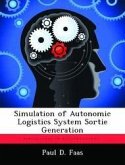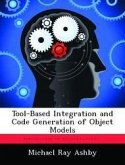The primary objective of this research is to investigate the impact of an autonomic logistics system (ALS) on the sortie generation process for an individual airbase. As in some prior studies of this process, the methodology used to model the sortie generation process is a queueing network containing fork-join nodes for concurrent maintenance activities. The sortie generation rate is commonly regarded as the primary performance measure of the sortie generation process. This measure coincides with the throughput and is used to compare two models: i) pre-ALS operations and ii) ALS-enhanced airbase operations. Analysis of the models shows that the ALS model yields higher generation rates under a variety of scenarios resulting from the differences in the sortie generation process that are inherent when an ALS is implemented. These results demonstrate that implementation of an ALS will positively impact the sortie generation process by increased sortie generation rates with equivalent or reduced resource levels.
Hinweis: Dieser Artikel kann nur an eine deutsche Lieferadresse ausgeliefert werden.
Hinweis: Dieser Artikel kann nur an eine deutsche Lieferadresse ausgeliefert werden.








